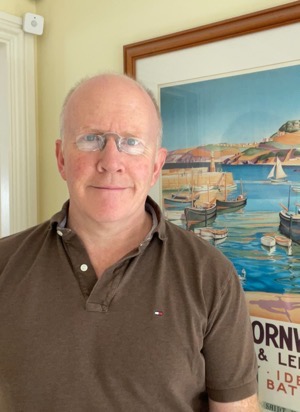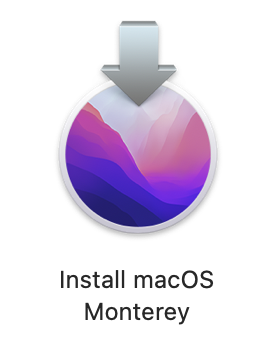Status-Q, in its current form, is 22 years old today. I haven’t posted for a week or so because I’ve been terribly energetic on some Swiss ski slopes.
Monthly Archives: February, 2023
A return to “Ulysses”
After my rather damning post about James Joyce’s Ulysses a little while ago, I decided I needed to make a more determined effort to sample more of it so that I knew whereof I spoke. I would make a serious attempt upon its slopes.
A couple of people suggested that it is better to listen to it being read by a good Irish actor than to read it yourself, and that made sense to me. Many people prefer Shakespeare when acted… but of course Shakespeare was meant to be acted. It’s also written in the language of four centuries ago. Ulysses is modern and was meant to be read, but it helps if a good actor interprets it for you because Joyce was either too lazy or too pretentious to make it easy for you with things like normal punctuation, or, in many cases, identifying who is actually speaking.
I thought Hilary Mantel’s use of the third person present tense in the Wolf Hall trilogy was also a somewhat foolish affectation, but it turns out to work exceedingly well in audiobook form, giving it the immediacy of a screenplay. It’s a much more enjoyable read than Ulysses, but, again, it helps to have somebody interpret simple things like who the author actually means by ‘he’ in this sentence! It’s not that readers can’t work it out, it’s just that the need to do so imposes friction which is unnecessary and doesn’t, to my mind, add anything. Mantel was a good writer and didn’t need to resort to such novelties to get attention.
Anyway, I love audiobooks, and spent my one Audible credit on this reading of Ulysses by Tadhg Hynes. It runs to nearly 32 hours — almost a French working week — and both he, and Kayleigh Payne, who reads the part of Molly, do a really terrific job. So with their aid, I have now ‘read’ the majority of Ulysses; at least, I got well past the 50% mark, and then skipped to the last chapter. But even having read about two-thirds of it gives me a sense of achievement rather like having finished an exam or run a marathon. I achieved something, but I don’t have any desire to do it again. Perhaps, since I skipped ahead when the tedium became too much, I can at least say I managed a half-marathon!
I was trying to work out, as I wandered the country lanes listening to it, what attracted people to Ulysses. It has originality, certainly, on various fronts. Few novelists spend as much time discussing defecation, masturbation and menstruation, for example, and one could argue that they therefore miss out on key parts of the human experience! So it’s certainly memorable in places.
But overall, here’s my Ulysses FAQ:
-
Is it compelling? No, it’s a long slog, requiring serious stamina.
-
Is it entertaining? Only rarely. I would chuckle lightly once every few hours.
-
Does it have a good plot? No. It has no discernible plot.
-
Are the characters interesting? No.
-
Is it edifying? No.
-
Is it educational? No.
-
Is it beautiful? No.
-
Is it clever?
Ah, well, there you have me. Yes, I have to admit that it is often very clever. And there’s the rub. I imagine that the more you study it, the more you see in it, and the more you appreciate the cleverness. People with lots of time on their hands — those taking Arts degrees, for example — can probably unwrap many more layers than I did, and so are more likely to think it great. If you’re an English Lit. student and can set aside a week to listen to it while also reading it, and pause periodically to consult study notes explaining it, then the book would, I’m sure, yield a lot more. Joyce’s intention was to make it obscure, saying that he had “put in so many enigmas and puzzles that it will keep the professors busy for centuries arguing over what I meant, and that’s the only way of insuring one’s immortality”. In that, he succeeded! I’m sure it’s great material for literary PhD theses.
But here’s the thing… Is it actually worth that effort? It seems strange that an author should go to so much trouble just to be clever. I spent about 20 hours in the company of the main characters, for example, without developing the slightest interest in them or any desire to go any further in their company. It’s almost as if the book deliberately has no story, no purpose, except to be clever. And that, I think, is its chief failing.
Now, there is some undeniably great poetry in there. Occasionally Joyce would capture in four words what might have taken others twenty-four, and I would tingle with appreciation. But there were far more occurrences of using twenty-four words for what could have been said in four, or probably eliminated completely, if he’d had a better editor. (The fact that I felt able to skip the equivalent of about 200 pages without much risk of missing anything important will give you the idea.)
To return to my marathon analogy, it’s as if you’ve been condemned to run for hours through dull industrial estates and suburbs, so when you see the occasional cherry blossom you gasp, “Oh, how beautiful!”. The real question is “Why didn’t the organisers pick a route through beautiful countryside in the first place?” The book has interesting aspects, but it could have been so, so much better if it had had a plot, interesting characters, less pretentious forms of originality, less unnecessary friction. A writer with the capabilities that Joyce very clearly has could have chosen to overlay his brilliance on a much better landscape, and then he would have written a truly great book.
So I think my conclusion is this: Ulysses has the lowest signal-to-noise ratio of anything I’ve ever read or listened to. It’s like straining hard to detect the snatches of music through a radio with too much static, and discovering in the end that the tune just wasn’t very good.
Gasoline car review
A wonderful review by Geoff Greer compares one of these gasoline-powered cars to the experience of driving a normal electric one.
Here’s an excerpt:
Refueling was a mixed bag. Whenever I parked in my garage, I had to suppress the urge to plug the car in. Gasoline is only available at special stations, and it is prohibitively expensive to get a gasoline line installed in your home. So unlike a normal car, you don’t wake up every morning with full range. The only way to add range is to go to gas stations. These are similar to fast charging stations, but smelly and more dangerous.
I’ve been driving electric cars for over seven years now, so the very rare occasions when I visit a petrol station — a couple of months ago to buy some screen wash liquid, for example — definitely do remind me of what I’m (not) missing!
Anyway, do read the whole thing.
Thanks to John for the link.
Infinite dominoes
This is a lovely bit of design. I’m not sure whether I’m more envious of someone who has so much Lego, or someone who has so much time to play with Lego…
Language Skills for Time Travellers
Greetings, O time-traveller from the past! Welcome to our decade!
You may have noticed some distinct eccentricities in the English spoken in our time, but here is a quick phrase book to help you understand some of our more curious modes of speech:
| 2020s English | Traditional English | |
|---|---|---|
| “What’s happenin’?” | = | Good morning/afternoon/evening |
| “upskilling” | = | training |
| “to incentivize” | = | to give an incentive to |
| “cosplay” | = | dressing up |
| “going forward” | = | in the future |
| “reaching out to” | = | contacting |
| “he gifted” | = | he gave |
| “wellness” | = | feeling happy |
| “poor mental health” | = | feeling unhappy |
| “tweeting” | = | (actually, you probably don’t need to bother about this one any more) |
Now, let’s put what we’ve learned into practice. Here’s an example message that might be received by an employee of a company in the early 2020s from the senior management. Using the above table, you should be able to understand it:
What’s happening, everybody? Great news! We’re reaching out as part of our wellness and incentivization program to let you know that, going forward, we’ll be gifting you everything you need to participate in the cosplay sessions, which will take place on the evening before each of the monthly upskilling days. Remember, regular social activity has been proven to enhance your mental health!
What? Wait a minute…! You’re not staying?
Mostly Armless
Here’s a completely unsolicited recommendation for a product I just happen to like quite a bit and have been using for many years.
Having been fortunate enough to have excellent eyesight for the first four and a half decades of my life, I found that, as for so many people, things started to go downhill from there. One of the first things I discovered was that reading in bed was decidedly tricky, especially if, like me, you like lying on your side, and the arms of your reading glasses are mashed into the pillow.
“Aha!”, I thought, “There’s a solution for this. I need some pince-nez!” And I tried experimenting with antique ones purchased from eBay, or cheap ones found elsewhere online. One of my early YouTube videos, nearly eight years ago, was about using them inside a cheap VR headset! But they were never very satisfactory.
And then I came across a French company named Nooz. They now make a variety of different reading glasses, but it was the Nooz Originals that caught my eye; the pince-nez du jour, available with 5 different strengths from +1 to +3, and with a nice soft silicon bit to grip your nose.

They come in a pretty indestructible case which fits easily in your pocket or on your key ring, if you don’t, like me, just leave them on the bedside table. Because one thing I can guarantee is that you won’t look quite as good wearing them in public as the models on the Nooz website. Or at least, I won’t!
But optically, for a 20-quid pair of plastic glasses, they work really quite well, and they solved the reading-in-bed problem perfectly for me: I’ve used them ever since.

Now, where are my lorgnettes?
Chatting with the Bard?
Many, many years ago, I asked a friend of mine at Microsoft what he was working on, if he was able to tell me. I’ve always remembered his response. “I’m part of my company’s obsessive need to always try and play catch-up with Google.”
Well, the FT reported today that Google will soon be launching ‘Bard’, their competitor to ChatGPT, and no doubt many column inches will be written about their relative merits in the next few months. Microsoft has invested heavily in ChatGPT and is planning to incorporate its output into the Bing search engine. Perhaps, for once, they may have done a bit of leapfrogging?
I doubt they’ll hold any advantage for very long: Google have a lot of very smart and very expensive researchers at DeepMind to draw upon, not to mention elsewhere in the company. But there’s clearly a race on: if people really do want to get responses to their search queries in paragraph format, or even in essay format, then the novelty value might persuade large numbers who have never even tried Bing to give it a go, and perhaps stick with it. That could make a significant difference. (It may also spell the death knell for smaller search operations like DuckDuckGo who don’t have access to the same scale of resources.)
If such technologies do indeed become a key part of search results, then two questions immediately come to mind for me.
The first is the general question of attribution. Google search is currently a way of finding out not so much what Google says, but what other people say… as prioritised by Google. But you get back a series of citations of other websites, so you know where the answers come from. Even when people ask Google questions of opinion such as “Is the new Doctor Who any good?” — as, to my astonishment, they apparently do rather a lot! — the snippets that they get back are clearly attributed.
What, however, will happen when they ask such questions and get back a paragraph of human-sounding text that has been completely artificially generated? How will they be able to judge its trustworthiness?
I suppose one could make an argument that a bot which is gathering knowledge from the whole web may be better able to assess the wisdom of the crowd than one that returns just a subset of others’ individual opinions. But it may be very hard to understand the origins of any responses given. And I suspect people will start asking it more important questions. “My husband has done X, Y and Z. Should I divorce him?”
Perhaps each response will come with extensive footnotes and a bibliography. That would make academics a bit happier, at least!
The second thought that occurred to me is related, and it made me think of my first ever trip to California back in the early 90s.
My hosts kindly took me to see a college football game at the Stanford Cardinals’ Stadium. For those unfamilar with the scale of American college sports, I should perhaps mention that the old stadium had a seating capacity substantially larger than the current one, which only seats 50,000. I remember getting very sunburned knees from sitting on the bleachers in the Californian sunshine. Anyway, as the one and only large football-y event I’ve ever attended on either side of the Atlantic, it was an enjoyable and educational experience, followed by a barbecue afterwards on the campus.
It was also, though, a memorable introduction to the way commercialism was woven into everyday life in America. The announcer, narrating the game, would say things like “That was an amazing play from Weinberger, and Stanford fans will also want to know about the amazing deals available at Smith’s Lincoln dealership in Menlo Park.” It was seamless, the same tone of voice, even part of the same sentence as the official commentary. I had come from a country where you had to switch TV channels to get commercials at all, and ads were carefully segregated, in all media, so you couldn’t mistake them from real reporting. I was shocked.
How, I wonder, will product-placement be incorporated into the chat-style results of future search engines? And will we be able to tell? Sponsors could pay to add a very small weighting to the inputs of the ML model that made it very slightly more likely to suggest cruise holidays than hotels, or to bring about very small shifts in political emphases. Few individuals would ever be able to detect this had happened to them, but what’s the power of a small shift in tone of voice on a particular subject when applied across hundreds of millions of people?
Update: Since my writing of this over breakfast this morning, Microsoft have announced that the new version of Bing incorporating some of the ChatGPT technology is now live! Here’s the BBC’s initial take on it, and you can try it out at bing.com. You may not get access to it very promptly unless you (a) have a Microsoft account and (b) install Microsoft plugins on your browser. And so the fun starts…
Where to get most buzz for your money
There’s an interesting article in today’s Guardian about a recent study by Which? magazine:
“Costa cappuccinos deliver nearly five times as much caffeine as Starbucks ones”
Buyers of a Costa medium cappuccino get three shots of espresso and a table-topping 325mg of caffeine, which is around the same as four cups of tea, and way above the Starbucks equivalent containing just 66mg.
Now, most of the estimates I’ve seen for a cup of tea don’t get close to 80mg of caffeine, and I find it hard to imagine that your average cup of tea contains more than a capuccino, even one of the paltry Starbucks variety.
Still, assuming its other statistics are accurate, the article’s interesting for a variety of reasons. A single espresso from Pret a Manger contains more than two cans of Red Bull, for example, but it’s still substantially less than that Costa cappo.
Your aim may be to increase or to reduce your caffeine consumption, but if you care either way, it’s surprisingly challenging to know what you’re actually getting!
© Copyright Quentin Stafford-Fraser



Recent Comments